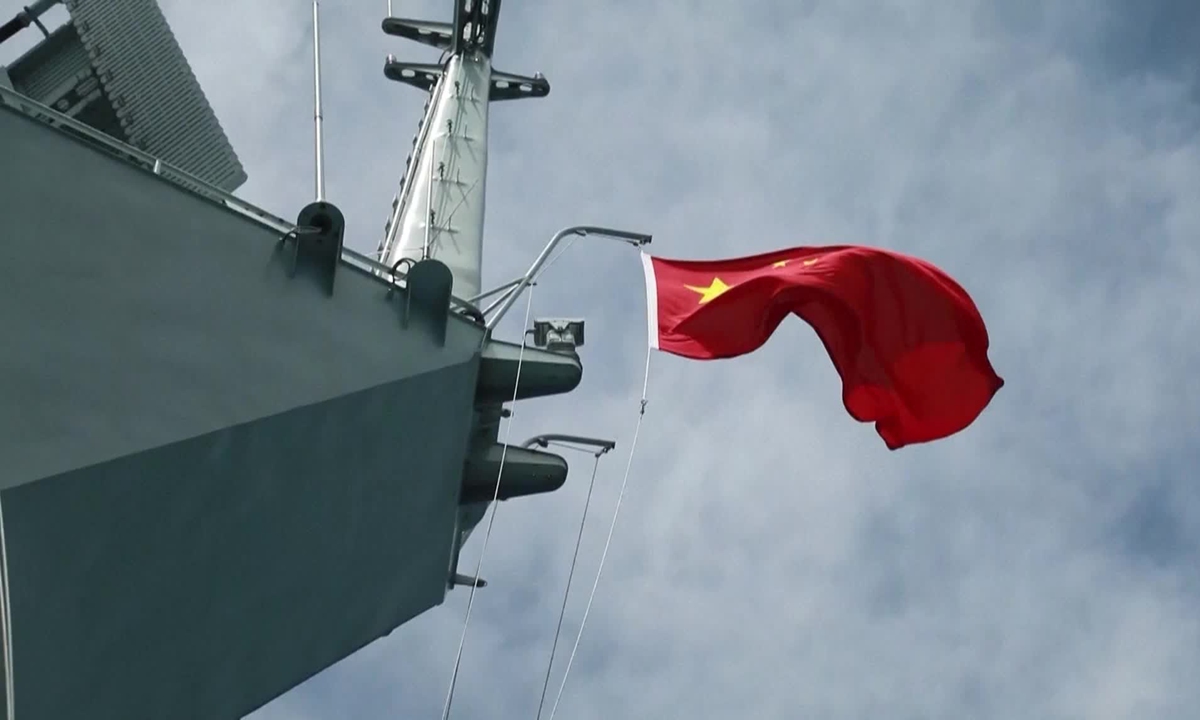(Source:Global Times,2024-05-29) The Chinese national flag waves on a Chinese People's Liberation Army warship as it conducts joint military drills surrounding the island of Taiwan on May, 23 2024. Photo: IC Following the highly provocative speech given by Taiwan's regional leader last week and the continuous collusion between the US and the DPP authorities, officials from the Chinese mainland sent out a strong warning again to Taiwan independence secessionist forces, reiterating the need to recognize the nature of the forces that betray and ultimately harm Taiwan. In response to the regional leader Lai Ching-te's speech on May 20, Zhu Fenglian, spokesperson for the Taiwan Affairs Office of the State Council, said on Wednesday that the remarks were extremely arrogant and vile in nature, betraying the national interest and running counter to the public will, constituting a blatant provocation against the one-China principle and a severe disruption to peace and stability across the Taiwan Straits. The speech was a complete Taiwan independence confession, the spokesperson said, noting that DPP authorities and external forces such as the US are singing the same tune and playing a double act, reversing black and white. The remarks were made as a US Senate delegation arrived in the island on Wednesday local time, led by US senators including Tammy Duckworth and Dan Sullivan, the Wall Street Journal reported. The visit comes just days after a bipartisan group of House members led by Michael McCaul, chairman of the Foreign Affairs Committee, visited the island and met with Lai. The senators' trip was aimed at showing strong bipartisan support for Taiwan during a challenging time, which also comes at a tense moment for the island as the Chinese mainland held joint military exercises surrounding the island last week, according to the media report. Supporting Taiwan against the so-called threats or coercion from the mainland, particularly in support of the so-called democratic Taiwan, can be said to be a consensus, or a rare common policy point, especially between the two parties in the US Congress, Xin Qiang, director of the Taiwan Studies Center at Fudan University, told the Global Times on Wednesday. Some experts said many people in the US think that Lai's speech was very mild and did not come as a surprise. Instead, they mistakenly thought it is the mainland that is aggressively coercing and even bullying the DPP authorities. Those people may not understand the provocative nature of Lai's speech because they do not understand the intricacies, the historical context of cross-Straits relations, or what some of Lai's words actually meant, Xin said. On the other hand, some people believe whatever Lai says is good, and whatever the mainland does is seen as a threat or coercion against a so-called democratic Taiwan, Xin said, noting that the attending members of Congress are both arrogant and ignorant when it comes to the Taiwan question. Some members make speeches or visit Taiwan as a political show, indicating that they stand with democratic partners and that supporting Taiwan means opposing China, which is now the US' biggest geopolitical rival, the expert said. China issued a stern warning to the US in multiple occasions urging it to immediately stop supporting and condoning Taiwan independence forces. In the latest round of China-US maritime affairs consultations, China emphasized that the one-China principle is the political foundation of China-US relations and Taiwan independence is the biggest threat to peace and stability across the Taiwan Straits. Lai's speech reflects a hardline 'Taiwan independence' stance, with a core mindset of opposing the mainland. In the future, there will be further exposure and criticism of Lai's 'Taiwan independence' activities, Wang Jianmin, a senior cross-Straits expert at Minnan Normal University in Fujian, told the Global Times on Wednesday. The mainland has also taken measures including military deterrence, and this military pressure will not change. It is not only pressure on Taiwan independence but also on external interference, Wang noted. Meanwhile, countermeasures against Taiwan independence include political and military struggles, and may in the future also include economic containment, which could be very broad-based, the expert said. Lai did not show any goodwill in his first so-called public appearance, indicating that he has no intention of improving cross-Straits relations during his tenure, experts said. The escalation of cross-Straits tensions is inevitable. In the future, the Taiwan Straits may see even more turbulences compared to the period when Tsai Ing-wen was in the office, Xin said, noting that opposing and containing Taiwan independence will undoubtedly be further strengthened.
Xin Qiang,“Mainland sends out strong warning to 'Taiwan independence,' vowing strong countermeasures”
发布时间:
2024-05-29
访问次数:
10
